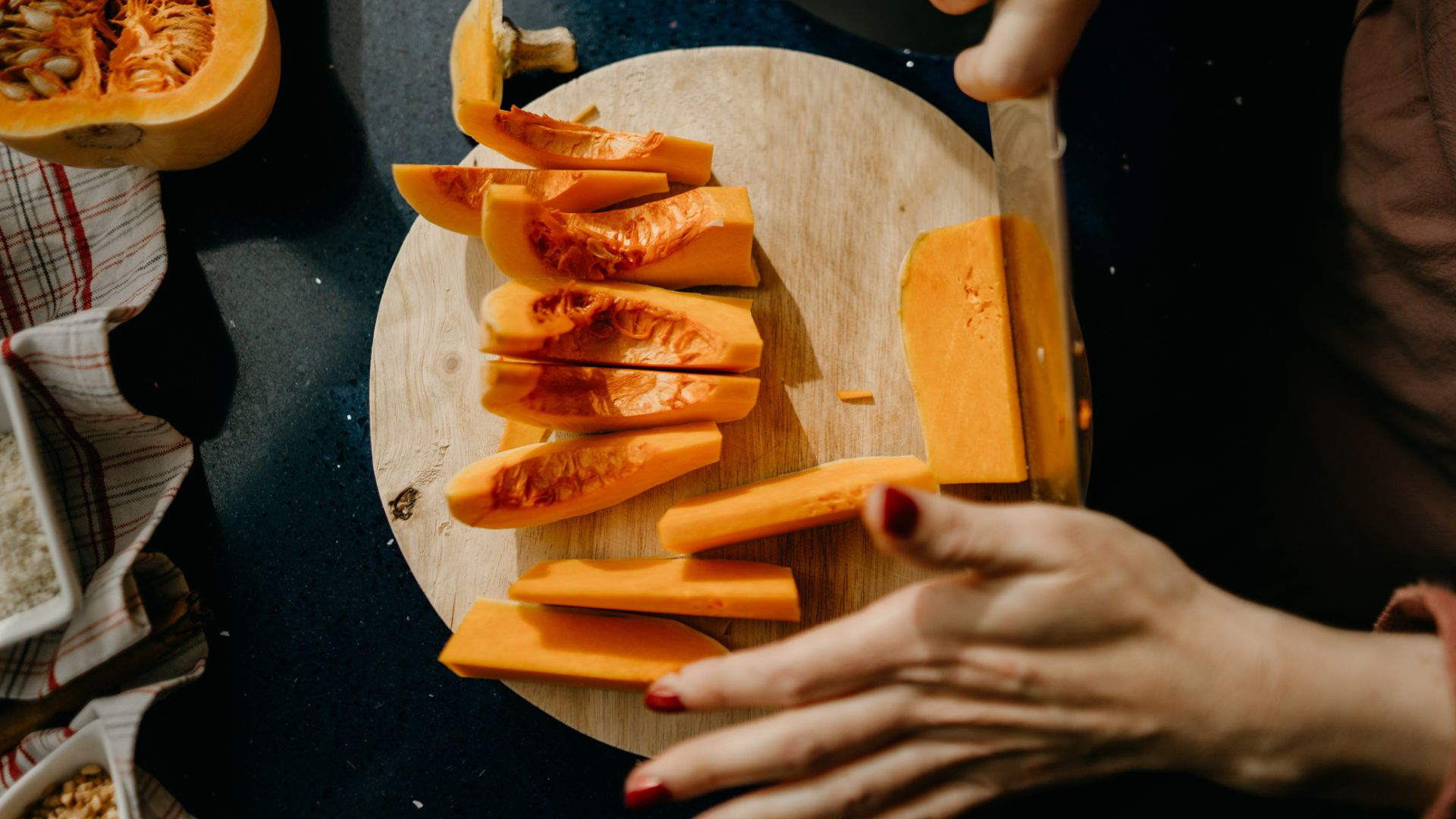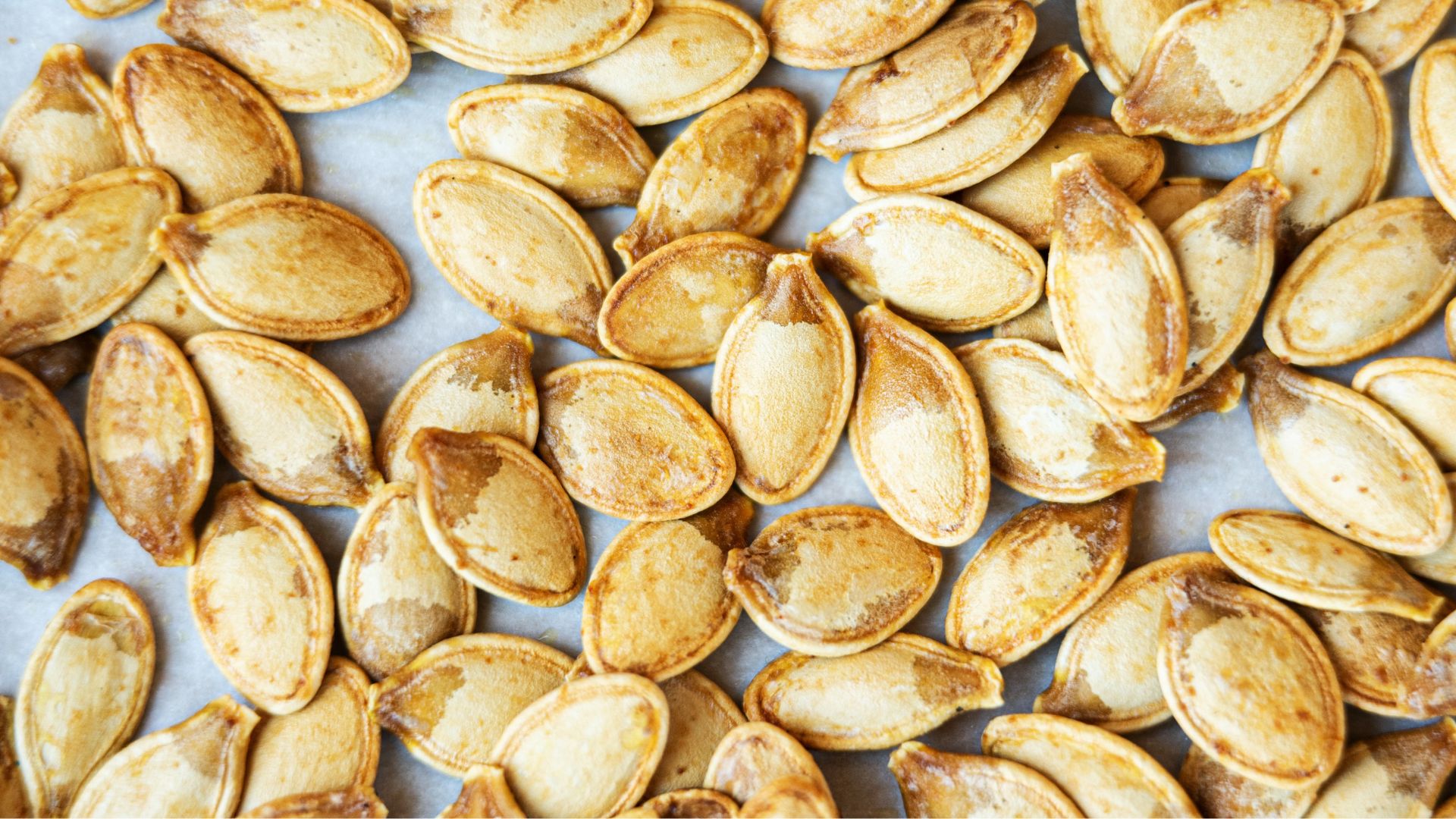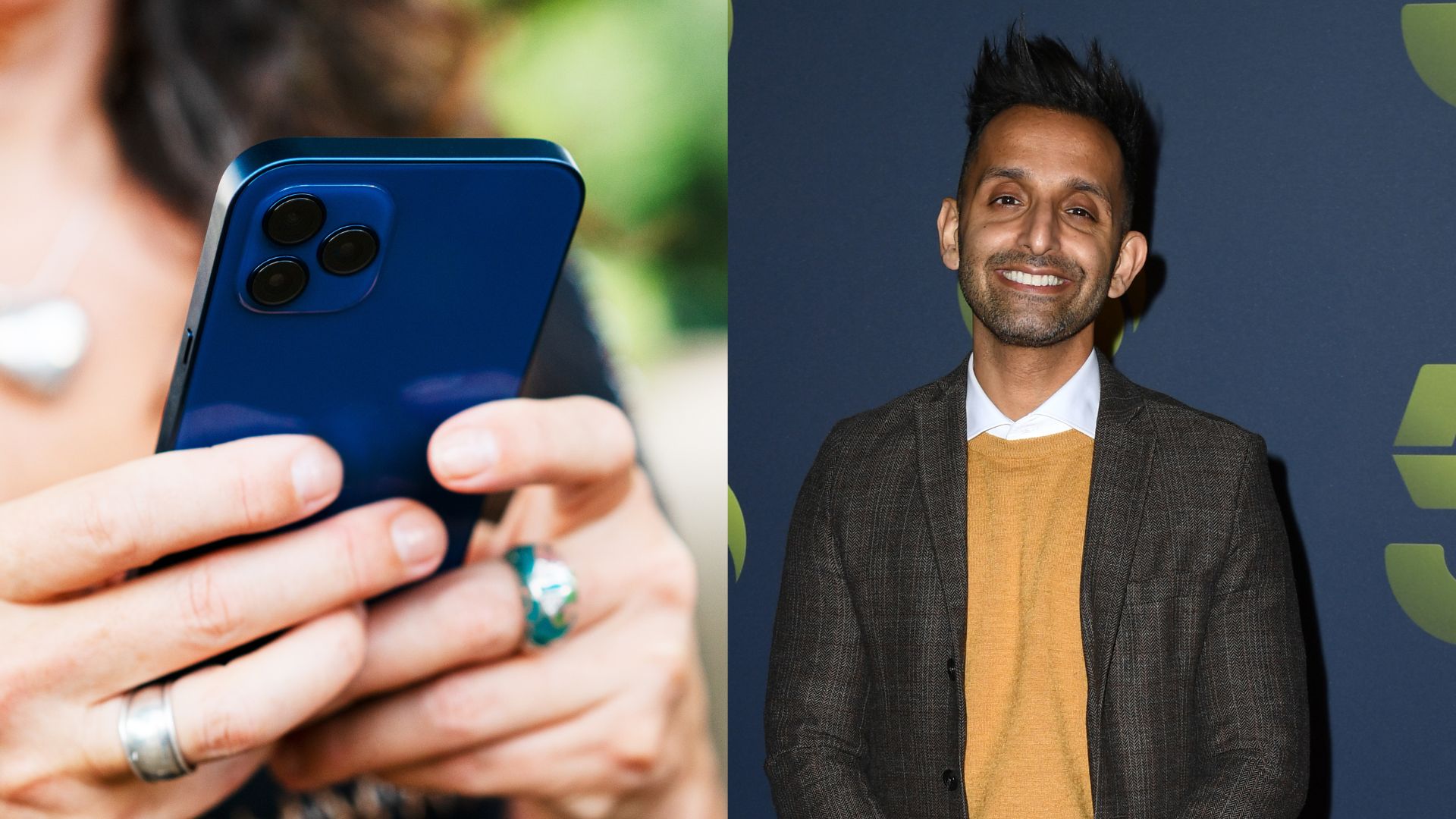5 ways to use up pumpkin seeds without any waste - and the unique benefits of eating this autumnal vegetable
Pumpkin season is here but this autumnal vegetable has more to offer than just decoration


Pumpkin season is here and we're making soups and stews with this warming vegetable - but what do you do with all those seeds?
Whether you're getting ready for the trick-or-treaters this evening or just want to get in the seasonal spirit, it's worth picking up a pumpkin. These autumnal vegetables make for delicious curries, soups, and stews - but the most underrated part of a pumpkin is the seeds. It's one of the best gut-healthy foods and an easy addition to your diet for better sleep and a stronger immune system.
Pumpkin seeds are rich in essential vitamins, minerals, and nutrients. Many of us throw them out, but here, nutritionists reveal the best ways to dry, roast, and cook them, along with the key benefits to be had from eating pumpkin seeds.
What to do with pumpkin seeds
1. Dry the seeds
Drying out your pumpkin seeds is an easy way to incorporate them into salads, smoothies, and side dishes. You can also use them as a healthy alternative to snacks like nuts and crisps.
"After cleaning the seeds, lay them on a paper towel to dry for a week. You can also speed up the drying process by using a hair dryer or dehydrator," says Elizabeth Inman, a certified holistic nutritionist and founder of Love A Holistic Life.
But don't feel like you have to eat them all at once. Dried-out pumpkin seeds can be stored for future use - and will stay edible until you're ready to restock with your pumpkin next year. "Once dry, place the seeds in a plastic container and store them in the back of the fridge until you're ready to eat them," she says.
2. Roast the seeds
"Start by soaking the seeds, then drain and rinse them in a colander," says Inman. "Boil the seeds in water and sea salt for about 10 minutes, then leave them dry. Once dry, toss the seeds in olive oil and lay them flat on a baking sheet. Bake at 300 degrees for 30-45 minutes or until golden brown, stirring occasionally to ensure even cooking."
Sign up for the woman&home newsletter
Sign up to our free daily email for the latest royal and entertainment news, interesting opinion, expert advice on styling and beauty trends, and no-nonsense guides to the health and wellness questions you want answered.
Roasted pumpkin seeds can be quite bland on their own, so add extra flavour with seasonings like garlic salt, cumin, curry powder, organic honey, and cinnamon, she suggests.
3. Make pesto
We all know that homemade pesto is better than store-bought and it's a quick, easy, comforting dinner idea. But who has pine nuts just lying around?
Pumpkin seeds are a great alternative if you blend them up, says Avery Zenker, a registered dietitian with a master's degree in nutrition who works with Everflex Fitness.
4. Add them into baked goods
Pumpkin seeds are also a great addition to baked goods like bread, cookies, energy balls, granola and trail mix, says Zenker.
Roasting pumpkin seeds is the most common way to add them to your diet, but there's no reason why you can't eat them raw. In fact, Inman says: "They actually contain more water-soluble vitamins [when eaten raw] compared to their roasted counterpart."

Roasting pumpkin seeds in the oven is the most common way to use them up - but you can also put them in the air fryer for the same effect.
5. Use them in your roast dinner
Nothing says November like a warming roast dinner - and roasted pumpkin seeds can top off this Sunday staple in a delicious and nutritious way.
After roasting your pumpkin seeds, blend them and make a crust for your chicken, pork shoulder, or nut roast. To get a perfectly glazed finish, brush your chicken with egg white and sprinkle blended, seasoned pumpkin seeds on top, adding a little cornstarch to the mixture if you like your crust extra crunchy.
If you're still stuck with leftover pumpkin in a few days, there are other ways to use up your pumpkin aside from eating it. For example, you can use leftover pumpkin in your garden to nourish the soil.
Benefits of eating pumpkin seeds
1. May help you sleep better
The clocks have just changed and research from Helsinki University shows our sleep schedules are worse off for it. Magnesium is one of the few minerals that can help the body effectively produce melatonin, the hormone needed for sleep.
It can also help the muscles relax, which is also essential for good sleep, says registered nutritionist Rob Hobson, who works with Healthspan. "Studies have shown that higher magnesium intake is associated with improved sleep patterns and reducing insomnia symptoms," he says.
These seeds are also rich in an amino acid called tryptophan, says Dr Sheila Walker, a functional health doctor. "This may help improve mood and promote better sleep by contributing to serotonin production, [a hormone] which is crucial for regulating mood and sleep cycles."
To help improve your sleep even more, Hobson recommends eating your pumpkin seeds with a side of carbohydrates like wholemeal pasta or rice. "This helps with the uptake of tryptophan to the brain," he says.
2. Good for your gut
We're often so focused on the impact of colds and flu at this time of year, we forget about looking after our gut health in winter.
Pumpkin seeds can help with this, says Hobson. "Soluble fibre in pumpkin seeds can dissolve in water to form a gel-like substance that promotes gut bacteria diversity and growth. This is essential for producing short-chain fatty acids (SCFAs), fuelling cells in the colon and helping to reduce inflammation."
This type of fibre also helps promote bowel regularity, preventing constipation and supporting overall digestive health, he notes.
3. Helps support the immune system
If you are concerned about colds this season, adding a sprinkling of pumpkin seeds to your meals could be the way forward. These seeds are rich in multiple vitamins and minerals that can help support the immune system, including zinc and vitamin E.
"Zinc supports immune cell production, particularly T-cells, which are vital for the immune response to pathogens," says Rob Hobson, and vitamin E works in a similar way too.
4. Fights inflammation
While we all need some inflammation for a working immune system, it's best not to have too much. Pumpkin seeds can help keep it to a healthy level as they are rich in Omega-3 fatty acids.
"The right balance of omega 3 to omega 6 fats keeps inflammation in check," says Dr Daryl Gioffre, a nutritionist and gut health expert. "In turn, this lowers the risk of heart disease, diabetes, brain fog, and even conditions like depression and anxiety."
A word of warning
Even though pumpkin seeds are rich in many important nutrients, they aren't suitable for everyone. "If you suffer from digestive conditions such as Crohn’s disease, ulcerative colitis, or irritable bowel syndrome (IBS), it’s advisable to limit or avoid whole pumpkin seeds," says Inman.
"The high fibre content in pumpkin seeds can lead to stomach upset, diarrhoea, bloating, and other symptoms," she says.

Grace Walsh is woman&home's Health Channel Editor, working across the areas of fitness, nutrition, sleep, mental health, relationships, and sex. She is also a qualified fitness instructor. In 2025, she will be taking on her third marathon in Brighton, completing her first ultra marathon, and qualifying as a certified personal trainer and nutrition coach.
A digital journalist with over seven years experience as a writer and editor for UK publications, Grace has covered (almost) everything in the world of health and wellbeing with bylines in Cosmopolitan, Red, The i Paper, GoodtoKnow, and more.
-
 Dr Amir Khan reveals the 5 symptoms you should 'never' ignore, no matter how 'vague' they are
Dr Amir Khan reveals the 5 symptoms you should 'never' ignore, no matter how 'vague' they areDr Amir Khan, a GP who often appears on ITV's Lorraine, took to Instagram this week to share the symptoms he'll always take a second look at
By Grace Walsh
-
 Head to Hobbs for holiday-ready linen and the most elegant summer dresses you’ll find on the high street
Head to Hobbs for holiday-ready linen and the most elegant summer dresses you’ll find on the high streetWondering where to shop for a chic summer wardrobe? Hobbs has you covered
By Caroline Parr